#western athletic conference
Explore tagged Tumblr posts
Text
Grand Canyon: 2024-25 Western Athletic Men's Basketball Champions

PARADISE, Nev. (AP) — Ray Harrison scored 18 points to lead six Grand Canyon players in double figures and the Lopes beat top-seeded Utah Valley 89-82 on Saturday night in the championship game of the Western Athletic Conference Tournament.
No. 2 seed Grand Canyon (26-7) clinched its third consecutive NCAA Tournament berth and its fourth in program history, all since 2021.
Duke Brennan finished with 16 points and 10 rebounds and JaKobe Coles scored 13 for the Lopes. Makaih Wiilliams, Lok Wur and Tyon Grant-Foster added 12 points apiece.
Carter Welling made a jumper that trimmed Utah Valley’s deficit to three with nine minutes to play but got no closer. Harrison answered with two free throws and, after a steal by Collin Moore, Williams hit a step-back 3-pointer with 8:23 remaining and Coles hit two free throws to make it 74-62 about five minutes later.
Tanner Toolson hit 6 of 9 from 3-point range and led the Wolverines with 28 points. Welling scored 18 points and Trevan Leonhardt added 10 with six assists.
Utah Valley (25-8), which had won 10 in a row and 20 of its last 21 games, won the regular season conference title and made its first-ever appearance in championship game. The Wolverines were 0-6 in tournament’s semifinals before a 68-55 win over No. 5 seed Seattle on Friday.
Utah Valley used a 19-5 run to take 21-12 lead about nine minutes into the game but Grand Canyon scored the next nine points and then closed with 7-1 spurt to take a 40-33 lead into halftime.
The teams split the regular-season series with each home team winning.
0 notes
Text
SO CAL COLLEGE BASKETBALL: Our NCAA Tournament Preview & Predictions
USC’s Juju Watkins (#12) getting off a shot against UCLA in Pauley Pavilion. Photo courtesy of pac12.com MY LOOK AT THE COLLEGE HOOPS TEAMS FROM SO CAL THAT WILL BE IN MARCH MADNESS As far as the Los Angeles area and Southern California is concerned, This year’s version of March Madness – the NCAA Tournament, The best thing the sport of basketball has to offer in the views of myself and…
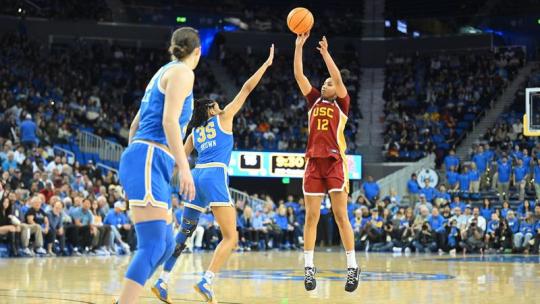
View On WordPress
#basketball#Big Dance#Big West Conference#college basketball#Exposition Park#Final Four#Galen Center#March Madness#NCAA Tournament#Pac-12 Conference#Pauley Pavilion#Trojans#UCLA Bruins#UCLA Women&039;s Basketball#University of California Los Angeles#University of Southern California#USC Trojans#USC Women&039;s Basketball#Western Athletic Conference#Westwood#women&039;s college basketball#Women&039;s NCAA Tournament
1 note
·
View note
Text

Have you ever wondered about NCAA Hockey? What's the Frozen Four? How do the rankings work? What players have played through the system?
We've got you covered in our primer here
#ncaa#ncaa hockey#pairwise ranking#frozen four#nhl#pwhl#atlantic hockey america#central collegiate hockey association#eastern college athletic conference#hockey east#national collegiate hockey conference#new england women's hockey alliance#western collegiate hockey association#independents#chl#ratings percentage index#great lakes invitational#desert hockey classic#cactus cup#beanpot#friendship four#nutmeg classic#nil#hobey baker award#patty kazmaier award#big ten
24 notes
·
View notes
Text
Even one girl losing first place, her spot on a women's team, and the resulting loss of scholarships is too many.
AUGUSTA (WGME) – A rally was held in Augusta Friday to oppose Maine's interpretation of Title IX, which allows trans athletes to play women's sports.
The issue was sparked last month when a Maine representative posted a photo online of a high school trans athlete, who placed fifth in a state pole vaulting event while competing as a boy two years ago, then won the event this year competing with girls.
That post sparked a nationwide response, leading to a heated exchange between President Donald Trump and Governor Janet Mills at the White House.
Some at Friday's rally say it isn't fair to force biological girls to compete against biological boys.
The executive director of the Maine Women's Lobby says it's a non-issue.
"This is something that I didn't think we were going to have to fight about,” Kennebec County Activism Club Chapter President Kristina Parker said. “The fact that men and women are different, and that women should be able to play in women's sports and men in men’s sports, and then if anyone wants to play in co-ed, they can do that. But this seems like a commonsense issue that we have to address since it's being questioned right now unnecessarily."
"This just feels like a real distraction to me and a divisive tactic,” Maine Women’s Lobby Executive Director Destie Hohman Sprague said. “Maine has 47,000 high school athletes, two of them are trans, and there's no evidence those athletes have a competitive advantage."
Rallygoers say they want to address the issue now to avoid more trans women competing in women's sports moving forward.
In the meantime...
A Maine state legislator posted about trans athletes in women’s sports on her Facebook page — then got banned from speaking or voting on the State House floor.
Now she’s suing the House speaker for violating her First Amendment rights.
“It was a bad move politically for the Democrat majority to censure me for speaking up for Maine girls and their right to a fair, safe, and level playing field, especially because 80% of Americans feel as I do,” Rep. Laurel Libby (R-Minot) told The Post.
It all started on February 17 when Libby, a Republican from Maine’s 64th District, posted a photo of a Maine high school transgender pole vaulter standing on the first-place step of a state championship podium.
“We’ve learned that just *ONE* year ago John was competing in boy’s pole vault… that’s when he had his 5th place finish,” Libby wrote on her Facebook page. ”Tonight, ‘Katie’ won 1st place in the girls’ Maine State Class B Championship.”
See rest of article
A biologically male runner who identifies as a female has been dominating high school girls’ cross-country track competitions across Maine since he transitioned following a lackluster freshman season competing against other boys.
The student, a junior at the Maine Coast Waldorf School in Freeport, dominated at the Western Maine Conference Championship in Standish on Wednesday, Oct. 16.
He took first place in the five-kilometer cross-country run.
The dominant long-distance runner defeated the second-place finisher, Zoe Carroll from York High School, by one second, finishing the 5k in 20 minutes and 29 seconds compared to Carroll’s 20:30.
Although he took first place competing against the girls, his performance was far from impressive when comparing his times against the other high school boys who ran the meet.
The top male runner, Aiden Ring, finished the 5K in 16:58, while the 1st place girls’ runners’ time would have placed him in 43rd place.
His herculean triumph over female runners in the Western Maine Conference Championship race rocketed his overall ranking in cross-country runs, bringing him up to second place overall among girls cross-country runners from class C schools in the state, according to a site that tracks runners’ performances.
Before that race, he was ranked fifth overall.
FREEPORT, Maine (CITC) — A high school runner in Maine is facing backlash for placing in the top five of a girls' cross country race just one year after performing poorly in the male division.
Soren Stark-Chessa runs cross country at Maine Coast Waldorf High School. The sophomore, who social media users claim is transgender, placed fifth in the girls' division of the Maine XC Festival of Champions Saturday.
Results from the same competition last year show Stark-Chessa placing 206th in the boys' division. The student-athlete ran nearly one minute faster this year, completing the race in a time of 18:11 compared to 19:04 in 2022.
Maine Coast Waldorf High School's profile on team management website Athletic.net also shows Stark-Chessa listed as a member of its male team in 2022 before being moved to its female roster this year.
In a video posted Saturday of Stark-Chessa finishing the race, one spectator can be heard yelling "way to cheat, bro" at the runner. The video has since gone viral, with social media users debating the fairness of Stark-Chessa's participation.
#usa#Maine#Augusta#title ix#Maine has 47000 high school athletes two of them are trans#How many in trans identified athletes in college?#How many girls is the Maine Women’s Lobby ok with losing to biological males?#The TQ+ allies censoring women who stand up for women's rights#Rep. Laurel Libby (R-Minot) just spoke the truth#Mediocre male athletes getting first place after transitioning#Maine Coast Waldorf School#Western Maine Conference Championship#Way to cheat bro
3 notes
·
View notes
Text
#Anthony Edwards#adidas#AE1#sneaker#sneakers#basketball#athlete#Minnesota Timberwolves#NBA#nba basketball#nba videos#nba season#nba western conference#bball#fyp#commercial#business#branding#sales#tumblr fyp#foryoupage#fypage#foryou#fypツ#fypシ#IndeedGoodMan
17 notes
·
View notes
Text
𝙋𝙊𝙄𝙎𝙊𝙉

“Girl you do damage to me”
📷:You’re a former athlete turned rising sports journalist, and you met Anthony Edwards while covering the 2024–25 season. By Christmas, you were inseparable. But even love couldn’t protect you from the kind of betrayal that follows men with too many cameras and too much access.
⚠️ ||makeup sex, unprotected sex, light choking, hair pulling, possessive dialogue, breeding kink, stomach pressure, praise and degradation, mentions of cheating (past), toxic relationship dynamics, strong language blah blah blah

The bass of the after-party pulsed through my chest, but my body wasn’t moving. I sat at the bar in a ed hardy crop top and cheetah print skirt that clung to my thighs, sipping something pink and sweet, smiling politely when anyone came up to speak. My camera crew had already dipped. My manager texted me three times to “network,” but I’d stopped trying to force a good time two hours ago.
I should’ve been happy. This was the biggest moment of my career so far—an invite to cover the Western Conference Finals, interviews with players, press passes, private dinners, free fits, the whole dream package. I had footage to edit, a podcast to record, brand deals to lock in… but my head was stuck on him.
Anthony Edwards had played his ass off. Forty-two points in Game 5. As usual he pissed everybody off, but played so well you couldn’t tell him shit. Carried the Wolves, and then went straight-faced into the press conference like it was just another Tuesday. I watched him answer every question with that cocky smile and pretend like nothing phased him. Not even me, seated front row, scribbling notes like him and I didn’t have a devastating breakup weeks ago.
I'd ignored the blogs. The Twitter whispers. The random girl tagging herself at his crib with a caption that said “he love it here” Everyone warned me. “All athletes are the same .” “You know he’s a whore.”
But I didn’t care about any of that.
That was the problem. I looked past the chain and the smirk and the shit-talking and saw Anthony, the one who rubbed my feet while I edited videos on deadline and kissed my shoulder before he left for road trips. I thought he was different because he said he liked me for my brain before my ass. Stupid.
“Y/N.”
My eyes snapped up, of course he was here.
He had on a black tee, low gold chain, and sweatpants that screamed “I just threw this on.” Although He did look good—too good. Too tall. Too smug.
“Thought you weren’t coming,” he said, sliding next to me at the bar.
“I didn’t come for you,” I replied instantly.
He smirked. “Didn’t say you did.”
I sipped my drink and didn’t look at him.
“You could at least say congrats.”
“Congrats,” I muttered sarcastically, glancing at his lips, then away. “You played great. Amazing, actually. MVP-worthy.”
He leaned on his elbows, his voice low. “That pride shit is gon be the death of you, but let me not talk to you crazy. I know how you get.”
I turned to him. “You still mad I said you weren’t media trained on my podcast?”
He laughed. “You still mad I said being an influencer ain’t a real job?”
I tilted my head. “It’s funny. I actually work for a living. You just bounce a ball and cheat.”
That made his jaw tick.
“You still believe that bullshit?”
“She posted you in her bed, Anthony.”
He scoffed. “After you ghosted me for a week and went to that Spotify summit with your lil media friends.”
“Oh, so it’s my fault you couldn’t keep your dick to yourself?”
He leaned in closer, breath warm against my cheek. “You act like you ain’t miss it.”
I scrunched my nose up at him, looking him up and down. His self prostitution always disgusted me. Anthony probably thought his dick had more value than his actual ability to play basketball. I put a few bills on the counter and walked out, needing to get away from the tension in the club.
Outside the club, the cool air hit me like a slap. I was already calling my Uber when he followed me out.
“I’m not letting this be the last time we talk,” he said.
I didn’t even turn around. “You already did that when you let someone else fuck you.”
He sighed. “I know I messed up, you keep punishing me instead of moving forward”
“I’m moving forward, by moving on Anthony“
He stepped in front of me. “Y/N—”
“What?”
“I miss you. And I ain’t gon’ lie like I don’t still think about you every damn day.”
“You think I give a fuck about you missing me?”
“I’m saying I want to fix this.”
I laughed. “With your dick? With your money? With your petty insults? With what Ant?”
I felt my eyes get heavy. I was tearing up outside of one of the biggest events in my career field, how embarrassing? “You could’ve just left me alone, I really don’t understand—”
He ran a hand over his face. “I ain’t come here to fight.”
“I don’t care what you came here to do, I don’t want you here in general”
That one hit.
He went quiet for a moment, staring at me like I’d slipped through his fingers.
“I ain’t never love nobody like I loved you,” he finally said.
I blinked back the sting in my eyes. “And I ain’t never hate nobody like I hate you.”
My Uber pulled up, and I turned to leave.
“Y/N,” he called after me.
I paused. Only a little.
“Let me come up. Just to talk.”
I exhaled, throat tight. “You get five minutes.”

I unlocked the door to my room and tossed my stuff to the side. I didn’t even take off my shoes before I turned around.
“You cheated. I trusted you.”
He stepped forward. “You ain’t never really trusted me.”
“You made me feel like I could have! You made me feel safe—then you let the internet treat me like a clown.”
“I defended you—”
“Where? In private? Quietly? While you let people say I was just some IG bitch who got lucky?”
He sighed, shaking his head. “I was tryna protect you.”
“Don’t flip it,” I snapped. “You let the media drag my name, let people call me a clout chaser while you were out here smiling in post-game interviews.”
He crossed his arms. “Y/N Please. Let’s not act like Ian make yo name jump. You were just doing youtube relationship recaps showing all 32 until we—”
“Wow.” My chest hollowed. “That’s sick.”
He shrugged. “Tell me I’m lying.”
“I have a whole master’s degree, Anthony. A real one. Not honorary. Not gifted. I did the work—publications, bylines, panel talks—before you ever followed me. Don’t ever try me like I’m some groupie bitch you elevated.”
He opened his mouth, but nothing came out.
“Say it again,” I challenged. “Say you made me. I dare you.”
He stepped closer, jaw tight. “I ain’t mean it like that.”
“No—you did. And you know what? That’s what hurts the most. Not the cheating, not the girls in your phone. It’s that deep down, you really believe I need you to be something.”
He didn’t say anything. His breathing was heavy. So was mine.
“You really think after all this I don’t care?”
“I think you care about yourself, and you wanna keep me around—“
“I still read every damn article you publish. I know when you’re faking a smile on camera. I saw that whole Pour Minds interview—you looked sad as hell even while smiling with your favorite people.”
I looked up at him, stunned, silent.
“You think you slick, Y/N? I love you—even when you try so hard to make the fucking media think I don’t .”
My chest heaved. “I hate you.”
He leaned down, his lips a breath from mine. “Then why are you still letting me stand here?”
I kissed him first.
Harsh. Angrily. Like I hated his guts but couldn’t keep my hands off of him.
He caught my face in his hands and kissed me back like he missed the taste of my mouth. Like he'd been starving. His hands roamed my waist, my thighs, gripping and releasing like he didn’t know where to hold on.
He spun me around, pressing me against the door, tongue licking into my mouth like he needed to silence everything we hadn’t said.
“You look so fucking good,” he whispered, teeth grazing my neck. “You wylin for what, knowing damn well you coming home .”
“You’re still not forgiven,” I breathed.
“I know.” His hands slid under my skirt, gripping my ass fingers grazing the growing wetness in my underwear. “But that pussy forgave me”
I moaned as he lifted me, carrying me to the bed, laying me down like I was still a doll he was scared to break. He stripped me slow, kissing every inch of skin he uncovered, whispering variations of , “You still mine” “I Love you.” “You so pretty”
“Open ,” he demanded. I hesitated just to spite him, but he didn’t flinch. “Don’t make me ask again.”
I giggled lightly and spread my legs.
The first lick was soft. Gentle. A tease.
But by the third? He was eating me like he’d gone starving since the last time. Hands gripping my thighs, tongue deep and sloppy and deliberate. What Anthony lacked in overall decorum, he made up for in the bedroom.
“Mmmm,” I gasped.
“You still don’t want me?,” he said, rising to kiss me, my taste lingering on his lips. “You still hate me?”
I nodded furiously, only to be grabbed by Anthony suddenly. He had that same smirk on his face, such a prideful man. He loved when he had a point to prove.
He flipped me over, ass up, face down, the way he knew made me melt and rage at the same time.
“You mad, huh?” he muttered as he slid in, slow and thick, my breath hitching with every inch. “Mad as fuck I still feel this good.”
“Ooo you get on my nerves.” I teased
“And you love it.” His hand gripped my throat from behind, bending my back toward him like a bow. “This pussy made for me. She don’t want nobody else.”
He pushed deep and stayed there, grinding into me slow. “Tell me it’s not mine.”
I couldn’t—I wouldn’t
“Go ahead tell me Y/N.”
“You ain’t shit,” I whispered.
“But It’s mine, ain’t it?” he whispered back, voice raw.
His hand slid down my stomach, pressing firm. “You feel that?” he muttered. “That’s me. Deep in this shit. Where I belong.”
He leaned down to my ear, breath warm.
“Finna get sixty acres with you. Our own land. Compound. Goats and shit. You barefoot in our garden pregnant with my fifth.”
“Stop! I told you bout that shit!—,” I hissed, knowing his intentions.
“Hush.” His fingers forcing their way into my mouth, I sucked them on instinct.
Lord we knew each other so well.
He started snapping his hips harder, meaner, but still with that sick, rhythmic control. Every thrust a punctuation mark. I met him just as hard, matching it out of spite, out of need, out of a love i’d never say out loud.
He came in me with a growl, chest pressed to my back, still whispering filth and fantasies.
Afterward, he collapsed beside me, both of us catching our breath, the room silent except for the faint hum of the city.
I turned my back to him. “This doesn’t mean anything.”
He pulled me close anyway, hand sliding up my thigh. “Yeah, yeah you still ain’t told me to leave.”
“Shut up.”
“Still mad?”
“I will always be mad.”
He kissed the side of my neck. “And I’mma always love you.”
I didn’t answer. But I didn’t move either.
I knew Anthony loved me, he always showed it but I knew I couldn’t trust him. But lord knows I could try.
I reached back, grabbed his hand, and pressed it to my belly.
“Sixty acres?”
“Minimum,” he whispered.
#black x reader#black writblr#x reader#black love#nba x reader#black men#my writing#wnba x reader#pynkthoughts#wbb x reader#minnesota timberwolves#anthony edwards#anthony edwards x reader#anthony edwards x black! reader#nba smut#nba imagine#timberwolves#western conference#anthony edward’s smut#nba fanfic#mbb x black! reader#mbb x reader#basketball x reader#x black!reader#black x black#black! fem! reader#black! smut#black!fem!reader#black plus size reader#black! reader
128 notes
·
View notes
Text
Chapter 4: Executed Jews
By Dara Horn, excerpted from People Love Dead Jews
ALA ZUSKIN PERELMAN AND I HAD BEEN IN TOUCH ONLINE before I finally met her in person, and I still cannot quite believe she exists. Years ago, I wrote a novel about Marc Chagall and the Yiddish-language artists whom he once knew in Russia, all of whom were eventually murdered by the Soviet regime. While researching the novel, I found myself sucked into the bizarre story of these people's exploitation and destruction: how the Soviet Union first welcomed these artists as exemplars of universal human ideals, then used them for its own purposes, and finally executed them. I named my main character after the executed Yiddish actor Benjamin Zuskin, a comic performer known for playing fools. After the book came out, I heard from Ala in an email written in halting English: "I am Benjamin Zuskin's daughter." That winter I was speaking at a literary conference in Israel, where Ala lived, and she and I arranged to meet. It was like meeting a character from a book.
My hosts had generously put me up with other writers in a beautiful stone house in Jerusalem. We were there during Hanukkah, the celebration of Jewish independence. On the first night of the holiday, I walked to Jerusalem's Old City and watched as people lit enormous Hanukkah torches at the Western Wall. I thought of my home in New Jersey, where in school growing up I sang fake English Hanukkah songs created by American music education companies at school Christmas concerts, with lyrics describing Hanukkah as being about "joy and peace and love." Joy and peace and love describe Hanukkah, a commemoration of an underdog military victory over a powerful empire, about as well as they describe the Fourth of July. I remembered challenging a chorus teacher about one such song, and being told that I was a poor sport for disliking joy and peace and love. (Imagine a "Christmas song" with lyrics celebrating Christmas, the holiday of freedom. Doesn't everyone like freedom? What pedant would reject such a song?) I sang those words in front of hundreds of people to satisfy my neighbors that my tradition was universal — meaning, just like theirs. The night before meeting Ala, I walked back to the house through the dense stone streets of the Old City's Jewish Quarter, where every home had a glass case by its door, displaying the holiday's oil lamps. It was strange to see those hundreds of glowing lights. They were like a shining announcement that this night of celebration was shared by all these strangers around me, that it was universal. The experience was so unfamiliar that I didn't know what to make of it.
The next morning, Ala knocked on the door of the stone house and sat down in its living room, with its view of the Old City. She was a small dark-haired woman whose perfect posture showed a firmness that belied her age. She looked at me and said in Hebrew, "I feel as if you knew my father, like you understood what he went through. How did you know?"
The answer to that question goes back several thousand years.
~~~~~~~~~~~~~~~~~~~~~~~~
The teenage boys who participated in competitive athletics in the gymnasium in Jerusalem 2,200 years ago had their circumcisions reversed, because otherwise they wouldn't have been allowed to play. In the Hellenistic empire that had conquered Judea, sports were sacred, the entry point to being a person who mattered, the ultimate height of cool — and sports, of course, were always played in the nude. As one can imagine, ancient genital surgery of this nature was excruciating and potentially fatal. But the boys did not want to miss out.
I learned this fun fact in seventh grade, from a Hebrew school teacher who was instructing me and my pubescent classmates about the Hanukkah story — about how Hellenistic tyranny gained a foothold in ancient Judea with the help of Jews who wanted to fit in. This teacher seemed overly jazzed to talk about penises with a bunch of adolescents, and I suspected he'd made the whole thing up. At home, I decided to fact-check. I pulled a dusty old book off my parents' shelf, Volume One of Heinrich Graetz's opus History of the Jews.
In nineteenth-century academic prose, Graetz explained how the leaders of Judea demonstrated their loyalty to the occupying Hellenistic empire by building a gymnasium and recruiting teenage athletes — only to discover that "in uncovering their bodies they could immediately be recognized as Judeans. But were they to take part in the Olympian games, and expose themselves to the mockery of Greek scoffers? Even this difficulty they evaded by undergoing a painful operation, so as to disguise the fact that they were Judeans." Their Zeus-worshipping overlords were not fooled. Within a few years, the regime outlawed not only circumcision but all of Jewish religious practice, and put to death anyone who didn't comply.
Sometime after that, the Maccabees showed up. That's the part of the story we usually hear.
Those ancient Jewish teenagers were on my mind that Hanukkah when Ala came to tell me about her father's terrifying life, because I sensed that something profound united them — something that doesn't match what we're usually taught about what bigotry looks or feels like. It doesn't involve "intolerance" or "persecution," at least not at first. Instead, it looks like the Jews themselves are choosing to reject their own traditions. It is a form of weaponized shame.
Two distinct patterns of antisemitism can be identified by the Jewish holidays that celebrate triumphs over them: Purim and Hanukkah. In the Purim version of antisemitism, exemplified by the Persian genocidal decrees in the biblical Book of Esther, the goal is openly stated and unambiguous: Kill all the Jews. In the Hanukkah version of antisemitism, whose appearances range from the Spanish Inquisition to the Soviet regime, the goal is still to eliminate Jewish civilization. But in the Hanukkah version, this goal could theoretically be accomplished simply by destroying Jewish civilization, while leaving the warm, de-Jewed bodies of its former practitioners intact.
For this reason, the Hanukkah version of antisemitism often employs Jews as its agents. It requires not dead Jews but cool Jews: those willing to give up whatever specific aspect of Jewish civilization is currently uncool. Of course, Judaism has always been uncool, going back to its origins as the planet's only monotheism, featuring a bossy and unsexy invisible God. Uncoolness is pretty much Judaism's brand, which is why cool people find it so threatening — and why Jews who are willing to become cool are absolutely necessary to Hanukkah antisemitism's success. These "converted" Jews are used to demonstrate the good intentions of the regime — which of course isn't antisemitic but merely requires that its Jews publicly flush thousands of years of Jewish civilization down the toilet in exchange for the worthy prize of not being treated like dirt, or not being murdered. For a few years. Maybe.
I wish I could tell the story of Ala's father concisely, compellingly, the way everyone prefers to hear about dead Jews. I regret to say that Benjamin Zuskin wasn't minding his own business and then randomly stuffed into a gas chamber, that his thirteen-year-old daughter did not sit in a closet writing an uplifting diary about the inherent goodness of humanity, that he did not leave behind sad-but-beautiful aphorisms pondering the absence of God while conveniently letting his fellow humans off the hook. He didn't even get crucified for his beliefs. Instead, he and his fellow Soviet Jewish artists — extraordinarily intelligent, creative, talented, and empathetic adults — were played for fools, falling into a slow-motion psychological horror story brimming with suspense and twisted self-blame. They were lured into a long game of appeasing and accommodating, giving up one inch after another of who they were in order to win that grand prize of being allowed to live.
Spoiler alert: they lost.
~~~~~~~~~~~~~~~~~~~~~~~~
I was in graduate school studying Yiddish literature, itself a rich vein of discussion about such impossible choices, when I became interested in Soviet Jewish artists like Ala's father. As I dug through library collections of early-twentieth-century Yiddish works, I came across a startling number of poetry books illustrated by Marc Chagall. I wondered if Chagall had known these Yiddish writers whose works he illustrated, and it turned out that he had. One of Chagall's first jobs as a young man was as an art teacher at a Jewish orphanage near Moscow, built for children orphaned by Russia's 1919-1920 civil war pogroms. This orphanage had a rather renowned faculty, populated by famous Yiddish writers who trained these traumatized children in the healing art of creativity.
It all sounded very lovely, until I noticed something else. That Chagall's art did not rely on a Jewish language — that it had, to use that insidious phrase, "universal appeal" — allowed him a chance to succeed as an artist in the West. The rest of the faculty, like Chagall, had also spent years in western Europe before the Russian revolution, but they chose to return to Russia because of the Soviet Union's policy of endorsing Yiddish as a "national Soviet language." In the 1920s and 30s, the USSR offered unprecedented material support to Yiddish culture, paying for Yiddish-language schools, theaters, publishing houses, and more, to the extent that there were Yiddish literary critics who were salaried by the Soviet government. This support led the major Yiddish novelist Dovid Bergelson to publish his landmark 1926 essay "Three Centers," about New York, Warsaw, and Moscow as centers of Yiddish-speaking culture, asking which city offered Yiddish writers the brightest prospects. His unequivocal answer was Moscow, a choice that brought him back to Russia the following year, where many other Jewish artists joined him.
But Soviet support for Jewish culture was part of a larger plan to brainwash and coerce national minorities into submitting to the Soviet regime — and for Jews, it came at a very specific price. From the beginning, the regime eliminated anything that celebrated Jewish "nationality" that didn't suit its needs. Jews were awesome, provided they weren't practicing Jewish religion, studying traditional Jewish texts, using Hebrew, or supporting Zionism. The Soviet Union thus pioneered a versatile gaslighting slogan, which it later spread through its client states in the developing world and which remains popular today: it was not antisemitic, merely anti-Zionist. (In the process of not being antisemitic and merely being anti-Zionist, the regime managed to persecute, imprison, torture, and murder thousands of Jews.) What's left of Jewish culture once you surgically remove religious practice, traditional texts, Hebrew, and Zionism? In the Soviet Empire, one answer was Yiddish, but Yiddish was also suspect for its supposedly backwards elements. Nearly 15 percent of its words came directly from biblical and rabbinic Hebrew, so Soviet Yiddish schools and publishers, under the guise of "simplifying" spelling, implemented a new and quite literally antisemitic spelling system that eliminated those words' Near Eastern roots. Another answer was "folklore" — music, visual art, theater, and other creative work reflecting Jewish life — but of course most of that cultural material was also deeply rooted in biblical and rabbinic sources, or reflected common religious practices like Jewish holidays and customs, so that was treacherous too.
No, what the regime required were Yiddish stories that showed how horrible traditional Jewish practice was, stories in which happy, enlightened Yiddish-speaking heroes rejected both religion and Zionism (which, aside from its modern political form, is also a fundamental feature of ancient Jewish texts and prayers traditionally recited at least three times daily). This de-Jewing process is clear from the repertoire of the government-sponsored Moscow State Yiddish Theater, which could only present or adapt Yiddish plays that denounced traditional Judaism as backward, bourgeois, corrupt, or even more explicitly — as in the many productions involving ghosts or graveyard scenes — as dead. As its actors would be, soon enough.
The Soviet Union's destruction of Jewish culture commenced, in a calculated move, with Jews positioned as the destroyers. It began with the Yevsektsiya, committees of Jewish Bolsheviks whose paid government jobs from 1918 through 1930 were to persecute, imprison, and occasionally murder Jews who participated in religious or Zionist institutions — categories that included everything from synagogues to sports clubs, all of which were shut down and their leaders either exiled or "purged." This went on, of course, until the regime purged the Yevsektsiya members themselves.
The pattern repeated in the 1940s. As sordid as the Yeveksiya chapter was, I found myself more intrigued by the undoing of the Jewish Antifascist Committee, a board of prominent Soviet Jewish artists and intellectuals established by Joseph Stalin in 1942 to drum up financial support from Jews overseas for the Soviet war effort. Two of the more prominent names on the JAC's roster of talent were Solomon Mikhoels, the director of the Moscow State Yiddish Theater, and Ala's father Benjamin Zuskin, the theater's leading actor. After promoting these people during the war, Stalin decided these loyal Soviet Jews were no longer useful, and charged them all with treason. He had decided that this committee he himself created was in fact a secret Zionist cabal, designed to bring down the Soviet state. Mikhoels was murdered first, in a 1948 hit staged to look like a traffic accident. Nearly all the others — Zuskin and twelve more Jewish luminaries, including the novelist Dovid Bergelson, who had proclaimed Moscow as the center of the Yiddish future — were executed by firing squad on August 1952.
Just as the regime accused these Jewish artists and intellectuals of being too "nationalist" (read: Jewish), today's long hindsight makes it strangely tempting to read this history and accuse them of not being "nationalist" enough — that is, of being so foolishly committed to the Soviet regime that they were unable to see the writing on the wall. Many works on this subject have said as much. In Stalin's Secret Pogrom, the indispensable English translation of transcripts from the JAC "trial," Russia scholar Joshua Rubenstein concludes his lengthy introduction with the following:
As for the defendants at the trial, it is not clear what they believed about the system they each served. Their lives darkly embodied the tragedy of Soviet Jewry. A combination of revolutionary commitment and naive idealism had tied them to a system they could not renounce. Whatever doubts or misgivings they had, they kept to themselves, and served the Kremlin with the required enthusiasm. They were not dissidents. They were Jewish martyrs. They were also Soviet patriots. Stalin repaid their loyalty by destroying them.
This is completely true, and also completely unfair. The tragedy — even the term seems unjust, with its implied blaming of the victim — was not that these Soviet Jews sold their souls to the devil, though many clearly did. The tragedy was that integrity was never an option in the first place.
~~~~~~~~~~~~~~~~~~~~~~~~
Ala was almost thirteen years old when her father was arrested and until that moment she was immersed in the Soviet Yiddish artistic scene. Her mother was also an actor in the Moscow State Yiddish Theater; her family lived in the same building as the murdered theater director Solomon Mikhoels, and moved in the same circles as other Jewish actors and writers. After seeing her parents perform countless times, Ala had a front-row seat to the destruction of their world. She attended Mikhoel's state funeral, heard about the arrest of the brilliant Yiddish author Der Nister from an actor friend who witnessed it from her apartment across the hall, and was present when secret police ransacked her home in conjunction with her father's arrest. In her biography, The Travels of Benjamin Zuskin, she provides for her readers what she gave me that morning in Jerusalem: an emotional recounting, with the benefit of hindsight, of what it was really like to live through the Soviet Jewish nightmare.
It's as close as we can get, anyway. Her father Benjamin Zuskin's own thoughts on the topic are available only from state interrogations extracted under unknown tortures. (One typical interrogation document from his three and a half years in the notorious Lubyanka Prison announces that the day's interrogation lasted four hours, but the transcript is only half a page long — leaving to the imagination how the interrogator and interrogatee may have spent their time together. Suffice it to say that another JAC detainee didn't make it to trial alive.) His years in prison began when he was arrested in December of 1948 in a Moscow hospital room, where he was being treated for chronic insomnia brought on by the murder of his boss and career-long acting partner, Mikhoels; the secret police strapped him to a gurney and carted him to prison in his hospital gown while he was still sedated.
But in order to truly appreciate the loss here, one needs to know what was lost — to return to the world of the great Yiddish writer Sholem Aleichem, the author of Benjamin Zuskin's first role on the Yiddish stage, in a play fittingly titled It's a Lie!
Benjamin Zuskin's path to the Yiddish theater and later to the Soviet firing squad began in a shtetl comparable to those immortalized in Sholem Aleichem's work. Zuskin, a child from a traditional family who was exposed to theater only through traveling Yiddish troupes and clowning relatives, experienced that world's destruction: his native Lithuanian shtetl, Ponievezh, was among the many Jewish towns forcibly evacuated during the First World War, catapulting him and hundreds of thousands of other Jewish refugees into modernity. He landed in Penza, a city with professional Russian theater and Yiddish amateur troupes. In 1920, the Moscow State Yiddish Theater opened, and by 1921, Zuskin was starring alongside Mikhoels, the theater's leading light.
In the one acting class I have ever attended, I learned only one thing: acting isn't about pretending to be someone you aren't, but rather about emotional communication. Zuskin, who not only starred in most productions but also taught in the theater's acting school, embodied the concept. His very first audition was a one-man sketch he created, consisting of nothing more than a bumbling old tailor threading a needle — without words, costumes, or props. It became so popular that he performed it to entranced crowds for years. This physical artistry animated his every role. As one critic wrote, "Even the slightest breeze and he is already air-bound."
Zuskin specialized in playing figures like the Fool in King Lear — as his daughter puts it in her book, characters who "are supposed to make you laugh, but they have an additional dimension, and they arouse poignant reflections about the cruelty of the world." Discussing his favorite roles, Zuskin once explained that "my heart is captivated particularly by the image of the person who is derided and humiliated, but who loves life, even though he encounters obstacles placed before him through no fault of his own."
The first half of Ala's book seems to recount only triumphs. The theater's repertoire in its early years was largely adopted from classic Yiddish writers like Sholem Aleichem, I. L. Peretz, and Mendele Moykher Seforim. The book's title is drawn from Zuskin's most famous role: Senderl, the Sancho Panza figure in Mendele's Don Quixote-inspired work, Travels of Benjamin the Third, about a pair of shtetl idiots who set out for the Land of Israel and wind up walking around the block. These productions were artistically inventive, brilliantly acted, and played to packed houses both at home and on tour. Travels of Benjamin the Third, in a 1928 review typical of the play's reception, was lauded by the New York Times as "one of the most originally conceived and beautifully executed evenings in the modern theater."
One of the theater's landmark productions, I. L. Peretz's surrealist masterpiece At Night in the Old Marketplace, was first performed in 1925. The play, set in a graveyard, is a kind of carnival for the graveyard's gathered ghosts. Those who come back from the dead are misfits like drunks and prostitutes, and also specific figures from shtetl life - yeshiva idlers, synagogue beadles, and the like. Leading them all is a badkhn, or wedding jester — divided in this production into two mirror-characters played by Mikhoels and Zuskin — whose repeated chorus among the living corpses is "The dead will rise!" "Within this play there was something hidden, something with an ungraspable depth," Ala writes, and then relates how after a performance in Vienna, one theatergoer came backstage to tell the director that "the play had shaken him as something that went beyond all imagination." The theatergoer was Sigmund Freud.
As Ala traces the theater's trajectory toward doom, it becomes obvious why this performance so affected Freud. The production was a zombie story about the horrifying possibility of something supposedly dead (here, Jewish civilization) coming back to life. The play was written a generation earlier as a Romantic work, but in the Moscow production, it became a means of denigrating traditional Jewish life without mourning it. That fantasy of a culture's death as something compelling and even desirable is not merely reminiscent of Freud's death drive, but also reveals the self-destructive bargain implicit in the entire Soviet-sponsored Jewish enterprise. In her book, Ala beautifully captures this tension as she explains the badkhn's role: "He sends a double message: he denies the very existence of the vanishing shadow world, and simultaneously he mocks it, as if it really does exist."
This double message was at the heart of Benjamin Zuskin's work as a comic Soviet Yiddish actor, a position that required him to mock the traditional Jewish life he came from while also pretending that his art could exist without it. "The chance to make fun of the shtetl which has become a thing of the past charmed me," he claimed early on, but later, according to his daughter, he began to privately express misgivings. The theater's decision to stage King Lear as a way of elevating itself disturbed him, suggesting as it did that the Yiddish repertoire was inferior. His own integrity came from his deep devotion to yiddishkayt, a sense of essential and enduring Jewishness, no matter how stripped-down that identity had become. "With the sharp sense of belonging to everything Jewish, he was tormented by the theater forsaking its expression of this belonging," his daughter writes. Even so, "no, he could not allow himself to oppose the Soviet regime even in his thoughts, the regime that gave him his own theater, but 'the heart and the wit do not meet.'"
In Ala's memory, her father differed from his director, partner, and occasional rival, Mikhoels, in his complete disinterest in politics. Mikhoels was a public figure as well as performer, and his leadership of the Jewish Antifascist Committee, while no more voluntary than any public act in a totalitarian state, was a role he played with gusto, traveling to America in 1943 and speaking to thousands of American Jews to raise money for the Red Army in their battle against the Nazis. Zuskin, on the other hand, was on the JAC roster, but seems to have continued playing the fool. According to both his daughter and his trial testimony, his role in the JAC was almost identical to his role on a Moscow municipal council, limited to playing chess in the back of the room during meetings.
In Jerusalem, Ala told me that her father was "a pure soul." "He had no interest in politics, only in his art," she said, describing his acting style as both classic and contemporary, praised by critics for its timeless qualities that are still evident today in his film work. But his talent was the most nuanced and sophisticated thing about him. Offstage, he was, as she put it in Hebrew, a "tam" — a biblical term sometimes translated as fool or simpleton, but which really means an innocent. (It is the first adjective used to describe the title character in the Book of Job.) It is true that in trial transcripts, Zuskin comes out looking better than many of his co-defendants by playing dumb instead of pointing fingers. But was this ignorance, or a wise acceptance of the futility of trying to save his skin? As King Lear's Fool put it, "They'll have me whipp'd for speaking true; thou'lt have me whipp'd for holding my peace." Reflecting on her father's role as a fool named Pinia in a popular film, Ala writes in her book, "When I imagine the moment when my father heard his death sentence, I see Pinia in close-up . . . his shoulders slumped, despair in his appearance. I hear the tone that cannot be imitated in his last line in the film — and perhaps also the last line in his life? — 'I don't understand anything.'"
Yet it is clear that Zuskin deeply understood how impossible his situation was. In one of the book's more disturbing moments, Ala describes him rehearsing for one of his landmark roles, that of the comic actor Hotsmakh in Sholem Aleichem's Wandering Stars, a work whose subject is the Yiddish theater. He had played the role before, but this production was going up in the wake of Mikhoel's murder. Zuskin was already among the hunted, and he knew it. As Ala writes:
One morning — already after the murder of Mikhoels — I saw my father pacing the room and memorizing the words of Hotsmakh's role. Suddenly, in a gesture revealing a hopeless anguish, Father actually threw himself at me, hugged me, pressed me to his heart, and together with me, continued to pace the room and to memorize the words of the role. That evening I saw the performance . . . "The doctors say that I need rest, air, and the sea . . . For what . . . without the theater?" [Hotsmakh asks], he winds the scarf around his neck — as though it were a noose. For my father, I think those words of Hotsmakh were like the motif of the role and — I think — of his own life.
~~~~~~~~~~~~~~~~~~~~~~~~
Describing the charges levied against Zuskin and his peers is a degrading exercise, for doing so makes it seem as though these charges are worth considering. They are not. It is at this point that Hanukkah antisemitism transformed, as it inevitably does, into Purim antisemitism. Here Ala offers what hundreds of pages of state archives can't, describing the impending horror of the noose around one's neck.
Her father stopped sleeping, began receiving anonymous threats, and saw that he was being watched. No conversation was safe. When a visitor from Poland waited near his apartment building to give him news of his older daughter Tamara (who was then living in Warsaw), Zuskin instructed the man to walk behind him while speaking to him and then to switch directions, so as to avoid notice. When the man asked Zuskin what he wanted to tell his daughter, Zuskin "approached the guest so closely that there was no space between them, and whispered in Yiddish, 'Tell her that the ground is burning beneath my feet.'" It is true that no one can know what Zuskin or any of the other defendants really believed about the Soviet system they served. It is also true — and far more devastating — that their beliefs were utterly irrelevant.
Ala and her mother were exiled to Kazakhstan after her father's arrest, and learned of his execution only when they were allowed to return to Moscow in 1955. By then, he had already been dead for three years.
In Jerusalem that morning, Ala told me, in a sudden private moment of anger and candor, that the Soviet Union's treatment of the Jews was worse than Nazi Germany's. I tried to argue, but she shut me up. Obviously the Nazi atrocities against Jews were incomparable, a fact Ala later acknowledged in a calmer mood. But over four generations, the Soviet regime forced Jews to participate in and internalize their own humiliation - and in that way, Ala suggested, they destroyed far more souls. And they never, ever, paid for it.
"They never had a Nuremberg," Ala told me that day, with a quiet fury. "They never acknowledged the evil of what they did. The Nazis were open about what they were doing, but the Soviets pretended. They lured the Jews in, they baited them with support and recognition, they used them, they tricked them, and then they killed them. It was a trap. And no one knows about it, even now. People know about the Holocaust, but not this. Even here in Israel, people don't know. How did you know?"
~~~~~~~~~~~~~~~~~~~~~~~~
That evening I went out to the Old City again, to watch the torches being lit at the Western Wall for the second night of Hanukkah. I walked once more through the Jewish Quarter, where the oil lamps, now each bearing one additional flame, were displayed outside every home, following the tradition to publicize the Hanukkah miracle — not merely the legendary long-lasting oil, but the miracle of military and spiritual victory over a coercive empire, the freedom to be uncool, the freedom not to pretend. Somewhere nearby, deep underground, lay the ruins of the gymnasium where de-circumcised Jewish boys once performed naked before approving crowds, stripped of their integrity and left with their private pain. I thought of Benjamin Zuskin performing as the dead wedding jester, proclaiming, "The dead will rise!" and then performing again in a "superior" play, as King Lear's Fool. I thought of the ground burning beneath his feet. I thought of his daughter, Ala, now an old woman, walking through Jerusalem.
I am not a sentimental person. As I returned to the stone house that night, along the streets lit by oil lamps, I was surprised to find myself crying.
#People Love Dead Jews#Dara Horn#Soviet Jewry#Soviet antisemitism#antizionism is not antisemitism#jumblr
347 notes
·
View notes
Text
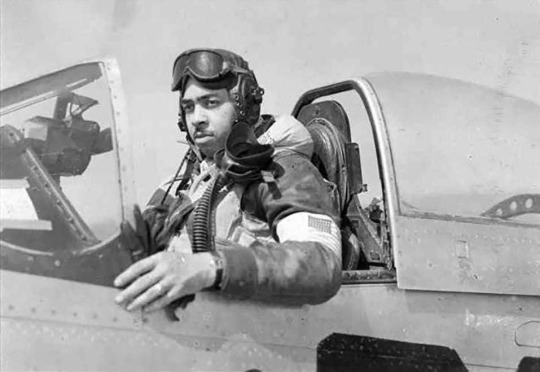
JACK DANIELS HOLSCLAW (1918-1998)
Tuskegee Airman Jack Daniels Holsclaw was born in Spokane, Washington, on March 21, 1918. His father, Charles, was a clerk in a downtown store, and his mother, Nell, was a manager at Pacific Telephone and Telegraph. Holsclaw attended North Central High School in Spokane, where he excelled both academically and athletically. When he was 15, he became the first black person in Spokane to earn the Eagle Scout badge.
Holsclaw entered Whitworth College in 1935 but transferred to Washington State College (now Washington State University) in 1936 to play baseball. Beginning in his junior year, he played center field and helped the Cougars finish as co-champions of the Northern Division, Pacific Coast Conference. He was the second African American earn a varsity letter in baseball at the college.
In 1939, Holsclaw transferred to a chiropractic program at Western States College in Portland, Oregon, where he met his wife, Bernice Williams. They had one son, Glen. Holsclaw completed the chiropractic program in 1942 and passed the Oregon state board examination.
While there, he enrolled in a government sponsored Civilian Pilot Training Program at Multnomah College and earned his pilot’s license. On October 5, 1942, he enlisted in the army as a private and entered flight school, training at Tuskegee Army Airfield, Alabama. After completing his training, he received his wings and was commissioned as a 2nd Lieutenant on July 28, 1943. Lieutenant Holsclaw received advanced training at Selfridge Field near Detroit, Michigan before his squadron was shipped to Italy in December 1943.
Lieutenant Holsclaw flew in the 100th Fighter Squadron, 332d Fighter Group, an all-black pursuit squadron. Holsclaw named his favorite P-51 “Bernice Baby” in honor of his wife. The 332d Fighter Group had distinctive red tails giving them the nickname “Red Tails.” The 332d Fighter Group escorted bombers on their runs over enemy territory, shielding them from German fighters. To the bomber crews that were protected by them they were the “Red Tail Angels.”
On July 18, 1944, in an aerial battle over Italy, Holsclaw shot down two German fighters. For this action he received the Distinguished Flying Cross. By December 1944, Holsclaw had completed 68 combat missions, nearing the limit of 70, when he became Assistant Operations Officer, an important administrative position that included aerial mission planning. In January 1945, Holsclaw was promoted to captain.
Captain Holsclaw returned to the United States in June 1945 to serve as assistant base operations officer at Godman Field, Fort Knox, Kentucky. He served as an Air Force ROTC instructor at Tuskegee Institute and then Tennessee State College.
From 1954 to 1957, Holsclaw was assigned to Japan, and from May 1962 to the end of 1964, he served as chief of the training division, Sixth Air Force Reserve Region at Hamilton Air Force Base, California. He directed the preparation of two textbooks to guide incoming air force personnel. Holsclaw retired from the Air Force on December 31, 1964 as a Lieutenant Colonel.
From 1965 to 1973 Holsclaw served as a manager in the Marin County Housing Authority, California. In 1973, he and Bernice returned to Washington where Holsclaw joined the staff at the People’s National Bank in Bellevue. He remained there until his second retirement in 1983. He and Bernice took up residence in Arizona, where Jack Holsclaw died on April 7, 1998, at the age of 80.
In August 2019, the Jonas Babcock Chapter, NSDAR, dedicated a historical marker in the memory of Lt. Col. Holsclaw at the site of his childhood home in Spokane.
147 notes
·
View notes
Text
Grand Canyon: 2023-24 Western Athletic Men's Basketball Champions
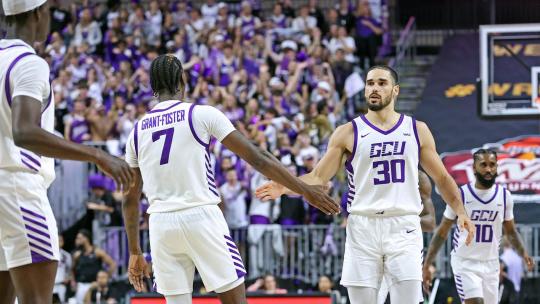
LAS VEGAS (AP) — Tyon Grant-Foster scored 22 points, Ray Harrison added 15 of his 19 in the second half and top-seeded Grand Canyon beat UT Arlington 89-74 Saturday night to win the Western Athletic Conference Tournament for the second consecutive season and clinch an automatic berth in the NCAA Tournament.
The Lopes have appeared five of the last six WAC Tournament title games, winning three of the last four.
Lok Wur scored 16 points and Jovan Blacksher Jr. 14 for Grand Canyon (29-4).
Phillip Russell led UT Arlington (20-14) with 22 points, including four 3-pointers. Shemar Wilson added 13 points and Akili Vining 10.
Harrison converted a three-point play and followed with two free throws to open the second half as Grand Canyon scored 14 of the first 21 points to open its biggest lead at 50-39 with 15 minutes to play. Brandyn Talbot answered with two free throws before Phillip Russell hit a 3 to trim the deficit to six points a minute later and made another from beyond the arc to make it 68-64 with 4 minutes remaining.
McGlothan answered with a monstrous two-hand dunk before Talbot hit another 3 to cut UTA's deficit to three points but Harrison hit two free throws and the Mavericks committed turnovers on their next two possessions and, each time, Grant-Foster hit two free throws before Harrison made a layup to cap an 8-0 run and make it 78-67 with 1:43 to go.
Moore threw down a fast-break dunk with 2.9 seconds left that stretched Grand Canyon's lead to 86-74 — the Lopes' biggest of the game. Russell, who apparently took umbrage with the play, seemed to intentionally bump Moore, who was then hit with the ball following a baseball pass by Vining. Moore was assessed a Flagrant-2 foul, Vining a technical foul and both players were ejected.
Derrick Michael Xzavierro, who didn't play for Grand Canyon, was also ejected for leaving the bench area.
UT Arlington shot 49% (25 of 51) from the field and limited the Lopes to just 40% (23 of 58) shooting but the Mavericks were outscored 37-14 from the free-throw line, where GCU attempted a Division-I program record 50 shots.
Grand Canyon scored 32 points off 26 Mavericks turnovers and committed 14, which UTA converted into just 11 points.
No. 3 seed UT Arlington made its only NCAA Tournament appearance when the Mavericks won the 2008 Southland Conference Tournament. UTA joined the WAC prior to the 2022-23 season.
0 notes
Note
i'd love to hear your beliefs about the tension in their relationship because i'm a very nosy bitch but obviously only if you feel like it!
lol well i did offer! beliefs is a strong word, tbh. more of a like ... is this stuff true? i don't know. but if i were writing a story where i wanted to have tension in that relationship, these are the places i would be inclined to introduce that tension. maybe there is tension in some of these places in real life! that's none of my beeswax.*
anyway: some places i think it is plausible that there's tension in the relationship, or at least plausible enough to play with in fiction. receipts on these where i can find them, sorry if they're paywalled but them's the breaks.
*unless they make it part of their public narrative
back in 2022 matthew was on the athletic hockey podcast and he talked about feeling "like a babysitter" when keith visits and how much keith enjoys being one of the guys. now mostly i think they probably have a pretty good time, but babysitter is a word choice there. i don't think it's a stretch to imagine that having your retired dad show up at your workplace and becoming the life of the party to relive his glory days could be ... trying.
not to beat around the bush but they're both opinionated guys! opinionated and chatty! and as a result you get: keith slamming the panthers on the radio. matthew sticking his nose into brady's contract negotiations (brady being grimace emoji about it). like, we know for a fact that the radio thing bothered matthew! and there's plenty of opportunities for one or both of them to offer unsolicited opinions that don't go over well.
to the previous point: i considered not including that because it's not as speculative as the others on the list. but it's definitely something i'd draw on if i was writing a story where their relationship is tense.
look, i'm not a man and not only am i not a man but i don't have any brothers and my dad died four and a half years ago and he never talked about his dad. so i can't claim to be an expert on the fathers-and-sons relationship dynamic. but why would i let that stop me from speculating wildly!
anyway: legacies. oldest sons. expectations. @ohtemporas touched on this briefly earlier, the way there's often an extra pressure on the oldest kid to be the same-gender-parent's legacy. do what i did. represent me well in the world. and i don't think it's even particularly weird for that to potentially lead to some conflicting feelings if all that legacy building leads to you being surpassed in some way. that's just human! especially for competitive people, and as i have said on this website before: no one becomes a professional athlete without being competitive.
here's keith being presented with matthew's 99th point puck from the 21-22 season, which his then-teammate did up with the writing for this specific purpose. chantal thinks this is SO funny. do think maybe being conflicted about being surpassed makes him not proud of matthew? no. but people can be complicated.
speaking of people being complicated: that one post-game after matthew scored 5 points on the blues. i think the tension between keith wanting his own team's success and wanting his sons' success isn't something people were making up out of whole cloth. but maybe it was especially noticeable when matthew was still in the western conference? i feel like it got dialed back after the trade. lol.
i'm mentioning it only because otherwise someone else might: i don't care about the hat thing. i think it's silly. if i was asked to throw my favorite hat onto the ice at an nhl game just because some schlub scored three goals i probably wouldn't.
a few concluding thoughts
i don't think any of this means they have a bad relationship! mostly i think that no two people have a perfect relationship where they agree on everything and never butt into each other's business uninvited and never hurt each other's feelings, because that's impossible.
i'm not making some counterpoint list of all the reasons i think they love each other. someone else can. i don't think having high expectations of someone means you hate them and i don't think anyone spends their time and money following their son's hockey team around the country on a road trip hoping to see him score his 100th point out of hatred or spite.
maybe i'm wrong about all of this and they've hated each other since 2002 and someday we'll get a tell-all story and people can come into my ask box or whatever and tell me how wrong i was. i don't care. all rpf characterization is fake. i watched keith froth at the mouth in the stands at the 2016 wjc every time someone so much as breathed on matthew, though, so i don't think i'm wrong.
32 notes
·
View notes
Text
First Nigerian Republic - Wikipedia
UNRULY SHOTTAS: PORT SYDNEY
Based on the True Story of a Culture Capital. They were the Murder Capital of Latin America, Made a Aussie Accent, Set World Records for Athletics, Printed over £50 Billion in Barbados, and immigrated a Nigerian Rugby Prospect. They made the Kingston-Calabar OT Trafficking Intermodal through Investments for a Trade Agreement and a Highway. Port Sydney Changed from a Fishing Villages to a Port Town.
Port Sydney (Ocho Rios) is a port town on the north coast of Jamaica. A former fishing village, it’s now a resort with a cruise ship harbor and a busy bay beach that’s lined with hotels. The surrounding parish of Saint Ann is home to rainforest, rivers and waterfalls. Dunn’s River Falls is a terraced, 180m mountain waterfall with lagoon pools, surrounded by trees.
Gold Smuggling through a Government Yard and Western Projects Point of View called Slumdog Millionaire: My Richness Is Life.
Philosophy
True Identity
Logotherapy
Having a Leopard’s Heart
Reproduction
Astrology
London Trap Culture
Ethnic Separatism (YARDIE)
African Diaspora
Sub-plots
Decadence
Ogun
Pre-colonial Africa
Trans-atlantic Slave Trade
Warlord-ism
African Drums and Shamanic Drumming
West African Pound
Tech-Driven Solutions Agronomics
Conflict Prevention and Reconstruction Unit
SUN LORD STRUCTURE
A cathedral is a church that contains the cathedra of a bishop, thus serving as the central church of a diocese, conference, or episcopate.
Parish Artisanal Plantation
Art Collegiate
Recession Resistance Industry
Marines Exclusive Church for Retirement Home
Rugby Church League on Thursday and Sunday after 5:30 and Noon Virgil; Equipment Sponsor and Free Clinics; Ram Sacrifices for Mars Venerated Athletes
My version of the Heavenly Host. Proxy Murder Government Officials, Judges, and Police Stations with Arcarbine Lords for Urban Warfare.
Westminster System with Executive Branch for Choirs and House of Lords ARCABINE LORDS
Another phrase to describe this obedience to the voice is “reckless abandon.” It simply means that we let God do what God wants to do through us. It means if He tells us to do something or say something—we do it.
Pedagogy (/ˈpɛdəɡɒdʒi, -ɡoʊdʒi, -ɡɒɡi/), most commonly understood as the approach to teaching, is the theory and practice of learning, and how this process influences, and is influenced by, the social, political, and psychological development of learners. Pedagogy, taken as an academic discipline, is the study of how knowledge and skills are imparted in an educational context, and it considers the interactions that take place during learning. Both the theory and practice of pedagogy vary greatly as they reflect different social, political, and cultural contexts.
Augustine's thesis depicts the history of the world as universal warfare between God and the Devil. This metaphysical war is not limited by time but only by geography on Earth. In this war, God moves (by divine intervention, Providence) those governments, political/ideological movements and military forces aligned (or aligned the most) with the Catholic Church (the City of God) in order to oppose by all means—including military—those governments, political/ideological movements and military forces aligned (or aligned the most) with the Devil (the City of the World).
Mekubbalim (followers of Kabbala) claim that the symbol has magical powers. There is no explicit historical or archaeological support for any of those claims. The star consists of two intertwined triangles: one pointing up to God and the other pointing down to man, symbolizing the relationship between the two—"the interpenetration of two realms" (source: Franz Rosenzweig, Star of Redemption, 1912). The animals associated with the Christian tetramorph originate in the Babylonian symbols of the four fixed signs of the zodiac: the ox representing Taurus; the lion representing Leo; the eagle representing Scorpio; the man or angel representing Aquarius. SHIELD OF OBASI!
God of Bethlehem: Regulus; Uranus-Saturn; Pluto Sol, and Venus (Sun Sky God; Elements Sun, Thunder, Air; Cardinal) Crista: Armour of God, Shield of Trinity, Shield of Obasi, Mars Blood, Rose of Venus, Pluto Effect, and Virility Crown; Religion: Tewahedo, Physique: Anabolic Metabolism Insulin Sensitivity, MSTN GENE, Roux en Y FBN1
RUGBY
World Cup Ambassador: In the Commonwealth of Nations, a high commissioner is the senior diplomat, generally ranking as an ambassador, in charge of the diplomatic mission of one Commonwealth government to another. Instead of an embassy, the diplomatic mission is generally called a high commission.
Work Out: Hurdle Plyometrics, Open Closed Chain Resistance Training with Power Sleds, Wall Sit Jump Contrast Training, and Lane Swimming with Treading Breaks for Body Recomposition and Metabolic Resistance Training
Offence: Fly-half And Centre Brigade: Kick Steps, Grubber and Drop Kicks, Crash Balls Mauls (Forearm Shoulder Barge), Clear outs, and Offload Playmaker. First Receiver after Rucks. Three Door Explode: Three Doors as Decision Making Indicator for Down Hill Sprinting; if No Doors Pass the Ball.
Defence: The basic defensive unit in rugby consists of three players. This obviously shifts very quickly, but at the point a tackle is likely, there should be a defender square with the ball carrier and supporting players on either side square with the immediate threats on the ball carrier's left and right. The drift defence is one of the two main types of defensive strategies in rugby (the other being the blitz defence). The basic concept behind the drift defence is to go “up and out” as a defensive line; once the ball carrier has past, the defender marking them should push outward to cover the receiver whilst the rest of the defensive line also shifts outward. Umbrella Defence provides more intensity in front of the ball than flat defence, with flanking support a step behind to cover kicks and recover quickly after a tackle is made. It also makes it easier to stop linebreaks if the player in front of the ball carrier is stepped.
Jack Boys: Players who have the ability to play a number of positions in a team are called utility players.[95] Utility players can be seen as "Jack of all trades"[95] and they generally occupy the reserve position in a team.[96] For this reason, many try to avoid being labelled as utilities.[97][98] Players in the forward positions are generally more specialised than those that play in the backs. However, flankers can usually play number eight, like Grégory Alldritt, David Pocock, Caelan Doris and Kieran Read. Many players may also be capable of playing lock as well as a back-row position, with several modern examples being Sébastien Chabal, Maro Itoje, Tadhg Beirne, Ryan Baird, Courtney Lawes, Steven Luatua, and Cameron Woki, all with international caps in both rows of the scrum. The front row positions are usually very specialised, although some props can play both sides or even hooker.
Quasi BioAesthetics as Topic and Things to Write about:
Gold Iron Calcium Zinc Oxide Hyaluronic Acid Illite Clay Hydrolyzed Collagen BioRNA Cluster
Bone Metabolism are Light but Metal like Aluminum
Pheomelanin Mid Brown Diamond Face
Blonde Hair with Hazel Eyes with Gold Fleeks
Ambidextrous Hand Eye Foot Coordination
Posterior Gross Motor Skills
Crystalized and Fluid Intelligence
Savant Sensory Overload
Sensory Modulits CNS
Omega 3 6 9, Conscientiousness, and Executive Functioning Skills no Amygdala Grey Brain
Stretch Vocal Chords with Tenor Voice
GABA Acetylcholine Receptors Sensitivity
Gnomes (Earth) And Salamanders (Fire)
God of Bethlehem: Regulus; Jupiter; and Venus (Sun Sky God; Elements Sun, Thunder, Air; Cardinal) Crista: Armour of God, Shield of Trinity, Mars Blood, Rose of Venus, Pluto Effect, Tarthatharath, and Virility Crown; Religion: Martyrology Angelican, Physique: Anabolic Metabolism Insulin Sensitivity, MSTN GENE, Roux en Y FBN1
DRUG SORCERY AND PHARMACOECONOMICS (PHARM BOYS AND PHARMA FIRMS)
Pharmaterrorism, in its original context, is understood to refer to the attempts of narcotics traffickers to influence the policies of a government or a society through violence and intimidation, and to hinder the enforcement of anti-drug laws by the systematic threat or use of such violence.
Pharma Maritime economy is a political and economic term applied to countries where all legitimate institutions become penetrated by the power and wealth of the illegal drug trade.
Elements of the maritime industry such as seaports and terminals have always been important areas of social and economic opportunities. Ports are key strategic sectors, playing key economic, internal and international security roles for both developed and developing countries.[9] The strategic importance of ports and other maritime resources have led to the industry being criticized by Maersk, a major shipping company, as "an environment where facilitation payments and extortion are common occurrences".[10] In the EU specifically, coastal regions and major sea ports have shown to present the highest risks of corruption. Europe's coastal borders have increasingly been subject to corruption pressure by smugglers in the past few years. In addition, border guards and local government officials are often involved in corruption schemes related to cross-border trade.Typically, in European small coastal towns, the corruption of border guards is often related to corruption in local authorities.[11] Several ports in Europe have been identified by the Center for the Study of Democracy as having extreme vulnerability to corruption pressures:[11]
Corruption can be defined in various ways. For example, according to the Oxford Dictionary, corruption is “dishonest or illegal behavior, especially of people in authority”.[4] Huntington (1989) defined it somewhat differently, by describing corruption as “the behavior, exhibited by public officials which deviates from accepted norms in order to serve private aims”.[5] These definitions are also correct for maritime corruption specifically, however, in this field corruption can be categorized in different ways – especially at ports.
Sequeira and Djankov (2014) distinguish between two types of corruption at ports: collusive and coercive corruption. Under collusive corruption, public officials and private agents share illicit transaction-generated rents, while under coercive corruption, public bureaucrats force private agents to pay additional fees to be able to gain access to public services and goods.[6]
Pharmacoeconomics refers to the scientific discipline that compares the value of one pharmaceutical drug or drug therapy to another.[1][2] It is a sub-discipline of health economics. A pharmacoeconomic study evaluates the cost (expressed in monetary terms) and effects (expressed in terms of monetary value, efficacy or enhanced quality of life) of a pharmaceutical product. Pharmacoeconomic studies serve to guide optimal healthcare resource allocation, in a standardized and scientifically grounded manner.
Pharmacoeconomics centers on the economic evaluation of pharmaceuticals, and can use cost-minimization analysis, cost-benefit analysis, cost-effectiveness analysis or cost-utility analysis. Quality-adjusted life years have become the dominant outcome of interest in pharmacoeconomic evaluations, and many studies employ a cost-per-QALY analysis. Economic evaluations are carried out alongside randomized controlled trials and using methods of decision-analytic modeling. Pharmacoeconomics is a useful method of economic evaluation of various treatment options. As more expensive drugs are being developed and licensed it has become imperative especially in context of developing countries where resources are scarce to apply the principles of pharmacoeconomics for various drugs and treatment options so that maximum improvement in quality of life can be achieved in minimum cost.[3]
A tablet press is a mechanical device that compresses powder into tablets of uniform size and weight. A tablet press can be used to manufacture tablets of a wide variety of materials, including pharmaceuticals, nutraceuticals, cleaning products, industrial pellets and cosmetics.
A cough syrup filling machine is designed to fill liquid in any viscosity, including syrup. There are many types of syrup-filling machines, such as vacuum, servo, pump, gravity, pressure, piston, and counting filling machines.
NIGERIAN POUND
The pound was the currency of Nigeria between 1907 and 1973. Until 1958, Nigeria used the British West African pound, after which it issued its own currency. The pound was subdivided into 20 shillings, each of 12 pence. The Nigerian pound, at parity with sterling with free convertibility,[1] was replaced in 1973 with the decimal naira at a rate of £1 = ₦2,[2] making Nigeria the last country to abandon the pre-decimal £sd currency system.
The House of Representatives (also called Green Chamber) is the lower chamber of Nigeria's bicameral National Assembly.[1] The Senate is the upper chamber.[2]
The First Republic was the republican government of Nigeria between 1963 and 1966 governed by the first republican constitution. The country's government was based on a federal form of the Westminster system.
An index fund (also index tracker) is a mutual fund or exchange-traded fund (ETF) designed to follow certain preset rules so that it can replicate the performance of ("track") a specified basket of underlying investments.
Key performance indicators (KPIs) are quantifiable measurements used to gauge a company’s overall long-term performance. Organizations use KPIs to track their progress on key business objectives.
ARCABINE LORDS
4 notes
·
View notes
Text
From akron to Global Icon: How LeBron James Impact extends far beyond the basketball Court
(Dec). N©1984ㅤ&:ㅤLeBron James: The King of Basketball and Beyond
LeBron James widely regarded as one of the greatest basketball players of all time, has left an indelible mark on the sport and transcended his role as an athlete to become a global icon. his story is not just about statistics championships or individual accolades but about his relentless pursuit of greatness and his influence both on and off the court. #Early Life and Rise to Fame
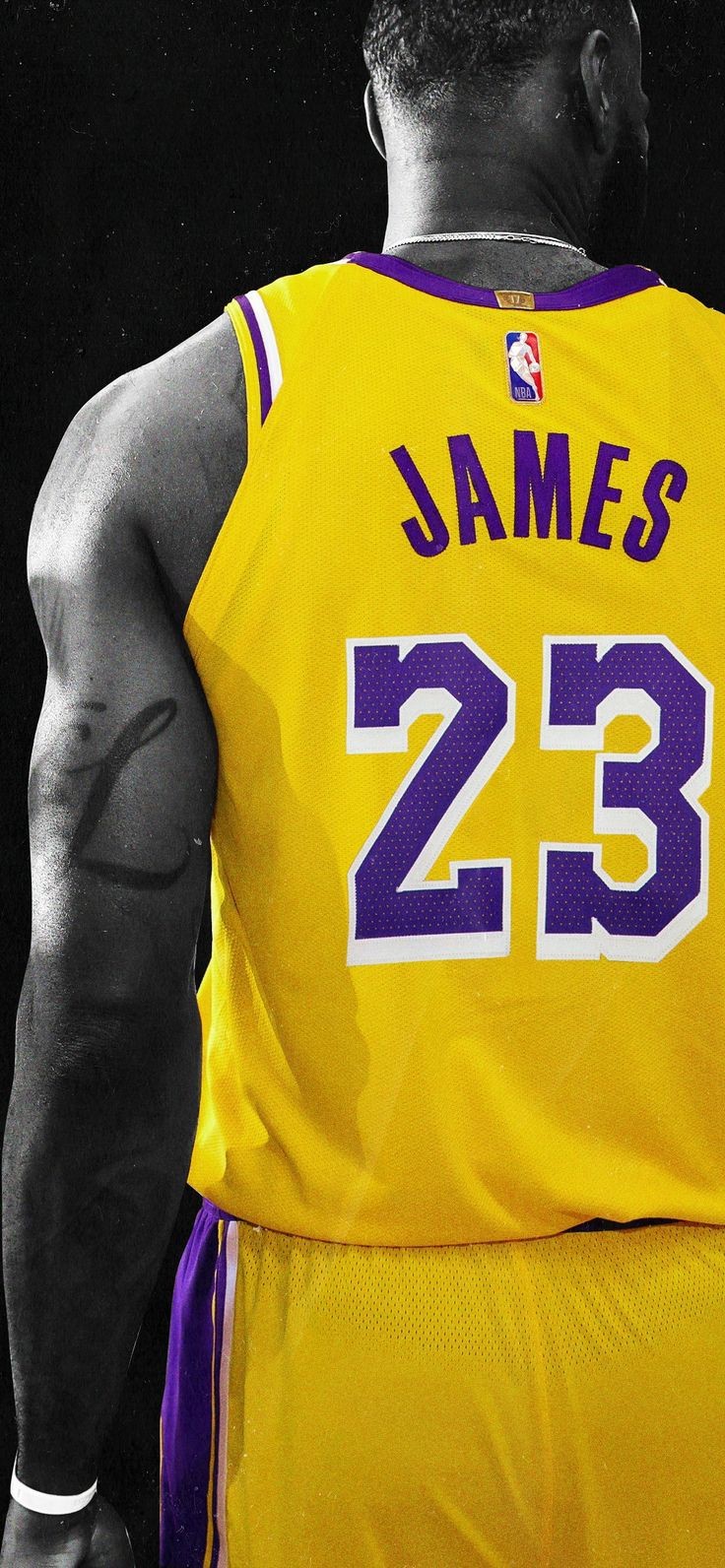
®GENERATIONAL STACKS ñ. “King James”
ㅤ
marked by an impressive list of accomplishments, including four NBA championships (2012, 2013, 2016, 2020), four NBA Most Valuable Player (MVP) awards, and 19 All-Star selections. His versatility on the court is what makes him so unique. At 6'9" and 250 pounds, LeBron has the size of a power forward but the passing ability of a point guard. He's known for his ability to play and defend multiple positions, making him one of the most well-rounded players in the history of the game. After seven years with the Cavaliers, LeBron made a highly publicized move to the Miami Heat in 2010, forming a "super team" with fellow stars Dwyane Wade and Chris Bosh.

While the decision to leave Cleveland was met with backlash, it proved to be the right one from a basketball standpoint. LeBron led the Heat to two championships in four consecutive NBA Finals appearances. In 2014, he returned to Cleveland, where he achieved perhaps his most iconic moment leading the Cavaliers to the 2016 NBA Championship coming back from a 3-1 deficit against the Golden State Warriors an accomplishment considered one of the greatest feats in sports history. LeBron's move to the Los Angeles Lakers in 2018 was another chapter in his storied career. In 2020 he delivered a championship to the Lakers cementing his legacy as a winner who could succeed in any environment
The Evolution of a Superstar Who Redefined the Game and Inspired a Generation
James produced 23 points (9-17 FG, 3-6 3Pt, 2-2 FT), four rebounds, seven assists and one block in 34 minutes during Tuesday's 122-110 loss to the Cavaliers:
Position: small Forward, Power Forward, Point Guard, Center, and Shooting Guard
fresh off his 40th birthday on Dec. 30, James scored over 20 points for the fourth consecutive outing, something he hadn't accomplished since a five-game stretch between Oct. 30 and Nov. 8 ended the final month of 2024 on a strong note with averages of 25.6 points, 6.8 rebounds and 8.6 assists across 10 outings
#Captain—LeMerica iso LEGEND every bounce been point since tha warmups,Teen Phenom Became the Face of the NBA LAKERS and a Cultural Force conquered the NBA built a Legacy and continues to Inspire the World
see my future with the Los Angeles Lakers! If I'm fortunate enough to make it to the NBA I'll step onto the court proudly joining the Los Angeles Lakers as my ultimate team.
long history of winning championships about once or twice a decade: The Los Angeles Lakers are an American professional basketball team based in Los Angeles. The Lakers compete in the National Basketball Association as a member of the Pacific Division of the Western Conference

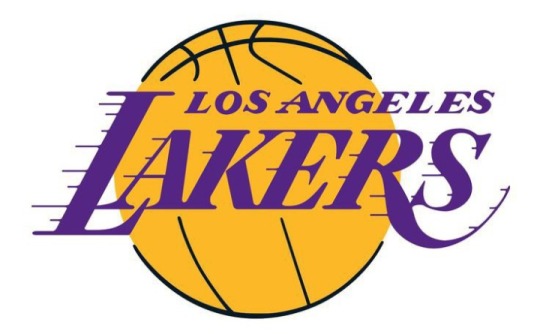
Quakers believe in doing good. They call it faith in action
Some Quakers believe in God, some dont Quakers welcome all faiths and none, they don't get hung up on beliefs
the history of the NBA with 17 championships
the Lakers compete in the National Basketball Association as a member of the Pacific Division of the Western Conference.
4 notes
·
View notes
Text


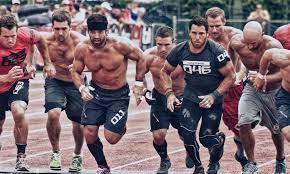
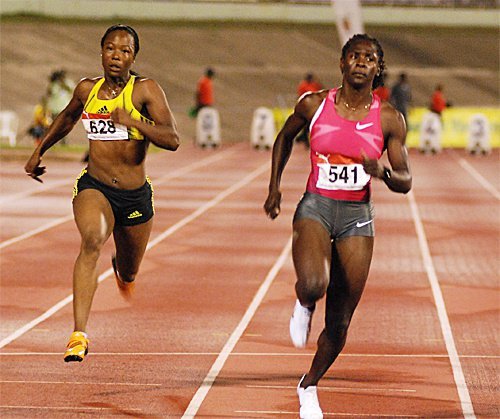

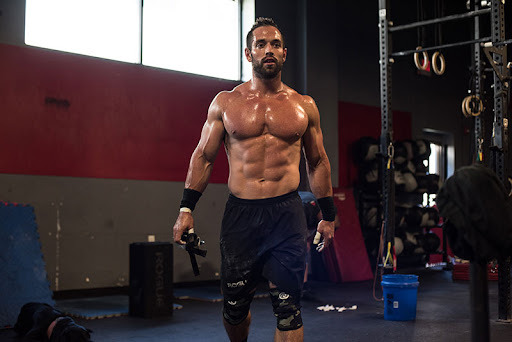
THE TOP 7 BENEFITS OF SPRINTING
ARE SPRINTS GOOD FOR YOU?
When I first got into fitness I used to think the longer the distance attempted the fitter I was. It had to be a 6 mile/10km run at a minimum to qualify! However, fitness is far more than the distance you can run and being functionally fit is considerably more beneficial.
I certainly prefer sprinting as a pastime now and my main endurance cardio is a purposeful brisk walk.
Humanity has been sprinting since we evolved to stand upright. It's made possible by an unusual quirk of our anatomy—a feature that our tree-dwelling closest living relatives don't have.
At some point during our evolutionary history (perhaps as we moved out onto the savannas of Africa), it became necessary for us to cover the vast distances between sources of food quickly, and we went from walking to running to sprinting.
Running at maximal pace (sprinting) confers a variety of physiological and health-related benefits. Many of us move from our beds to our cars to our desks, without ever needing to propel ourselves forward quickly.

#1 IMPROVES YOUR BODY COMPOSITION
Your body composition is your ratio of fat-to-muscle. Most westerners have weak body composition, with high levels of fat and low muscle mass. As a society, we eat too many energy-dense, nutrient-poor foods that promote the deposition of fat in our bodies. Many of us certainly don't do enough regular movement to build and maintain lean body mass.
Sprinting, however, not only helps to burn fat but also encourages muscles to grow. The reasons for this are not as straightforward as you might think.
Researchers are aware that it's not just the total calorie burn that matters for body composition, but the type of diet and exercise people do.
Research in Exercise and Sports Science Review suggests that sprinting shocks the body into becoming fitter at the cellular level. The researchers found that gene expression matters most for improving body composition.
Sprinting sends a signal to cells all over the body to toughen up and adapt to the new physical activity requirements, improving oxidative capacity and metabolic control during subsequent exercise, leaving you leaner.
Do you think endurance athletes have less body fat as a percentage of overall mass than sprinters? Interestingly there is research comparing the body composition of sprint and endurance athletes demonstrated that sprinters tend to have lower body fat percentages even though endurance athletes may look leaner.
#2 STAVES OFF AGEING
Since it helps build muscles, sprinting can help you stave off the muscle-wasting effects of ageing. Humans have several different types of muscles in their bodies, including so-called "fast-" and "slow-twitch" fibres. Fast-twitch muscle (type IIa and type IIb fibres that help you move powerfully) fatigue far more quickly than slow-twitch muscle (type I fibres used for posture and endurance).
Sprinting, as you might expect, trains fast-twitch fibres while movement patterns like standing, walking, and jogging activates slower-acting muscle cells.
Sprinting is an excellent exercise for those who want to build speed and power. The more you train the fast-twitch muscle fibres in your legs, the faster you'll be able to run and the higher you'll jump.
The skeleton also gets stronger too. Sprinting is classified as a weight-bearing exercise, and thus the bones can get stronger from sprinting. Getting your sprints in can help ward off osteoporosis and protect your balance and coordination.
You may feel you are too old to sprint and that it is an activity just for the young? Well, if in any doubt be inspired by Irene Obera still sprinting and breaking records well into her 80s.
It isn’t just about the body though, sprinting helps with ‘quickness’ and reaction time: evidence suggests improvements in reaction time reduces the risks of cognitive decline and conditions such as Alzheimer’s and dementia as we age.
#3 IMPROVES CARDIOVASCULAR HEALTH
HIIT or "high-intensity interval training" is something of a buzzword in the fitness industry right now. Practically every blog or fitness site recommends that people engage in this type of workout, and for a good reason—it's time-efficient and highly effective. HIIT is something I utilise as part of the programme in the Animal Moves book too!
Sprinting is the quintessential HIIT training tool. It's high-intensity, and you can do it in intervals, sprinting for a short period then resting between sprints.
Research in the Journal of Sports Science Medicine suggests that HIIT training has many advantages for cardiovascular fitness over traditional "steady state" training (such as jogging for five miles). Researchers found that, compared to controls, students who engaged in HIIT training saw significant improvements in their VO2 max (a measure of oxygen use) and peak power output, two important markers for cardiovascular fitness.
Unfortunately, HIIT training was much less enjoyable for the majority of people enrolled in the study than the less extreme exercise. It is much harder work for sure, but turning this activity into a game such as a game of chase or a version of tag would undoubtedly enhance the enjoyment factor.
Sprinting even has it's own category of HIIT called SIT (sprint interval training) which has similar health and performance benefits including attaining a lower resting heart rate.
It's no secret that sprinting like other forms of exercise is great for your heart. Regular sprints lower your risk of heart disease, improve your blood cholesterol levels, and help control and prevent high blood pressure.

#4 REDUCES STRESS
Like other forms of exercise, sprint training can combat stress. It releases feel-good endorphins into the brain, helping sprinters cope with the rigours of training and come out on the other side feeling good, ready to do it all over again.
Sprinting calms your body and your brain. In the short term the physical stress of the sprint helps you to focus on the task at hand. After your body works hard through sprinting, the levels of stress hormones, like adrenaline and cortisol, drop. Stress and anxiety fade away.
Endorphins tend to be highest at the end of an exercise session, giving the sprinter a sensation of confidence and relief. The sprinter’s high!

#5 IMPROVES YOUR METABOLISM, EVEN AFTER THE SPRINT IS OVER
Sprinting burns more calories per unit of time than jogging, but the average person can only sustain a sprint for 30 seconds at most. After that, the body depletes its anaerobic stores and must rely on aerobic sources of energy, which can't sustain the same high levels of effort.
In the past, the thinking was that sprinting couldn't burn as many calories as long-duration physical activity. But, researchers have found that sprinting increases the rate of energy burn long after a person finishes exercising. Sprinting isn't just about the calories your body burns during exercise, but also those that it uses to recover afterwards. One measure for this phenomenon is EPOC (excess post-exercise oxygen consumption) otherwise known as the after-burn effect or oxygen debt.
Heavy resistance training and HIIT workouts appear to be superior to steady-state running or lower-intensity training in creating EPOC.
From an evolutionary point of view, it wasn't an advantage to dedicate vast energy resources to building muscle: it was much better to keep muscles as small as possible to lower energy requirements. The process of modifying muscle fibres into fast-twitch is energy-intensive, meaning that the body resists building them if it thinks it can get away with it. Sprinting overcomes this natural reluctance, however, and forces the body to make these energy-consuming adaptations after you finish exercising, dramatically increasing your overall burn.

#6 SPRINTS IMPROVE GLUCOSE CONTROL
Many westerners have poor glucose control (and don't know it). Our cells have become less sensitive to insulin, which acts like a key that unlocks the cell's door, allowing glucose to enter. Reduced insulin sensitivity or, more seriously, the development of insulin resistance (which can develop into type 2 diabetes), means insulin can't shuttle sugar into cells, leading to a dangerous buildup of glucose in the blood.
Researchers published in BMC Endocrine Disorders found that sprinting could improve metabolic risk factors, such as high blood sugar levels, as well as improve cholesterol levels, reduces blood pressure, cuts abdominal fat, and improves sugar metabolism.
Researchers believe sprinting might improve glucose control through pathways similar to how it improves cardiovascular health. A burst of intense exercise such as sprinting, signals to cells that they need to get their act together and make it more likely you'll survive in a demanding environment.
Sprinting tells your cells that life is fierce, and you need them to do better!
#7 YOU CAN DO IT ANYWHERE
The great thing about sprinting is that it can be done anywhere. You don't need special equipment or training gear. You don't need a gym membership; you can sprint at home. Even with limited space, you can sprint on the spot or even seated in your chair using your arms.
It's even better when you get outside to exercise; you can sprint in your back garden or down the street. Head to your local park and sprint there too. You can watch a video of me sprinting outside here!
if you are in the gym and want to replicate the intensity of the sprint on a treadmill - try Treadmill Drivers - otherwise known as the Deadmill. Very playful and very powerful!
My personal favourite is sprinting when rushing for the bus! What about you?
To help you improve your sprint technique and for an example sprint programme check out this post.
#kemetic dreams#fitness motivation#sprints#fitness#runners#running#runningmotivation#sprinters#sprinter
17 notes
·
View notes
Text
"chase all the ghosts from your head"

In which Mattia Tkachuk is arguably the best athletic trainer in the NHL, Leon Draisaitl is arguably the best player in the Western Conference not named Connor, and the pair are on a collision course to each other.
Leon hates Matty immediately. Sure, she's gorgeous, and incredible at her job, and everyone loves her, but...
Matty's had a crush on Leon for years, because have you seen him play hockey. and... you know... in general?
Their friends and colleagues just want them to stop flirting already and fuck out their problems.
COMPLETED FIC, 52k, rated M (with E moments), and including Matty's vague hot chocolate addiction, I present "chase all the ghosts from your head"
Read HERE
#mattdrai#puck fics#hockey rpf#fanfic#mattdrai rpf#rule 63#i had more fun writing this than i thought#i am actually really proud of this
5 notes
·
View notes
Text

Terrence Alan Crews (July 30, 1968) is an actor, television host, and former football player. He played Julius Rock on Everybody Hates Chris. He hosted the US version of the game show Who Wants to Be a Millionaire and starred in The Family Crews. He appeared in films such as Friday After Next, White Chicks, Idiocracy, Blended, and The Expendables series. He has played NYPD Lieutenant Terry Jeffords in Brooklyn Nine-Nine. He began hosting America’s Got Talent following his involvement in the same role for the program’s spin-off series America’s Got Talent: The Champions.
He played as a defensive end and linebacker in the NFL for the Los Angeles Rams, San Diego Chargers, and Washington Redskins, as well as in the WLAF for the Rhein Fire and college football at Western Michigan University.
A public advocate for women’s rights and activist against sexism has shared stories of the abuse his family endured at the hands of his violent father. He was included among the group of people named Time Person of the Year for going public with stories of sexual assault during the Me Too movement.
He received a Chrysler-sponsored art scholarship at the Interlochen Center for the Arts, which was followed by an Art Excellence scholarship and a full athletic scholarship for football at WMU. He earned All-Conference honors and won the 1988 MAC Championship.
He was born in Flint, the son of Patricia Ann and Terry Crews. The middle child of three, he grew up in a strict Christian household in Flint. He spent a summer at Interlochen Arts Academy and entered Western Michigan University in Kalamazoo on an art scholarship. He tried out for the football team and earned a full athletic scholarship.
He met Rebecca King when he was a college sophomore; she was the music minister at a local church. They married (1989). They have four daughters and a son, Isaiah Crews, also an actor, and one grandchild. #africanhistory365 #africanexcellence
3 notes
·
View notes
Text
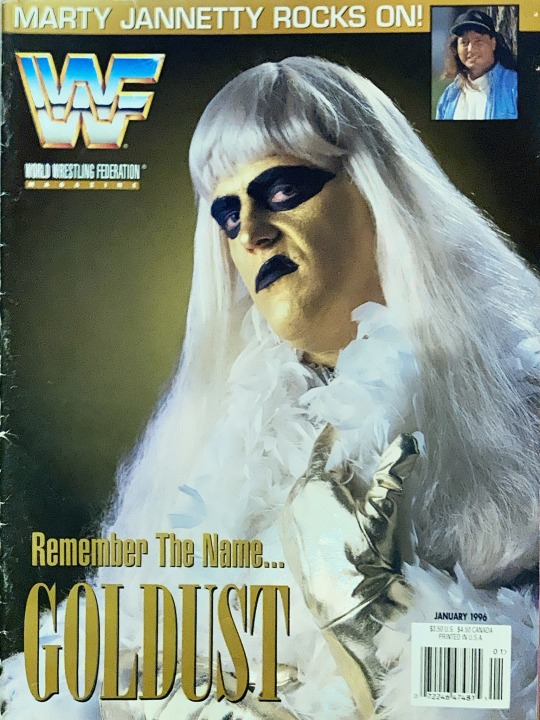
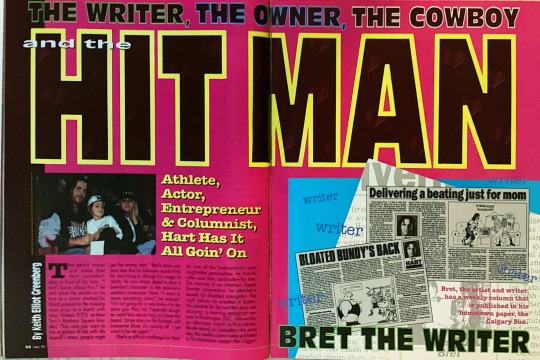
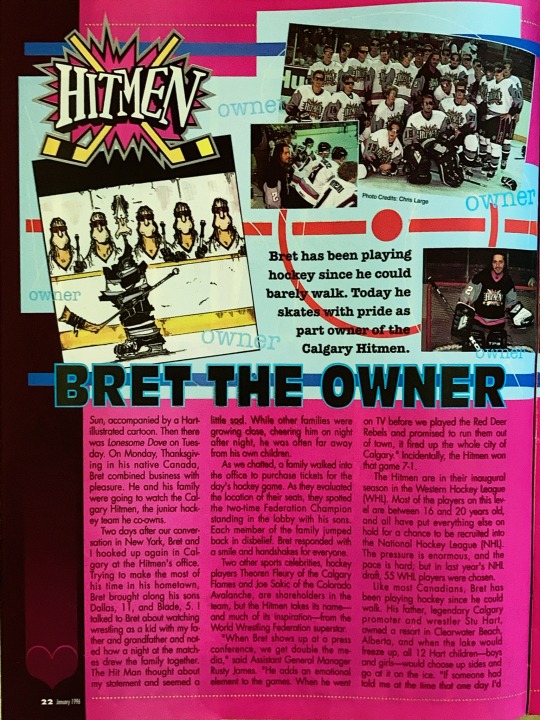
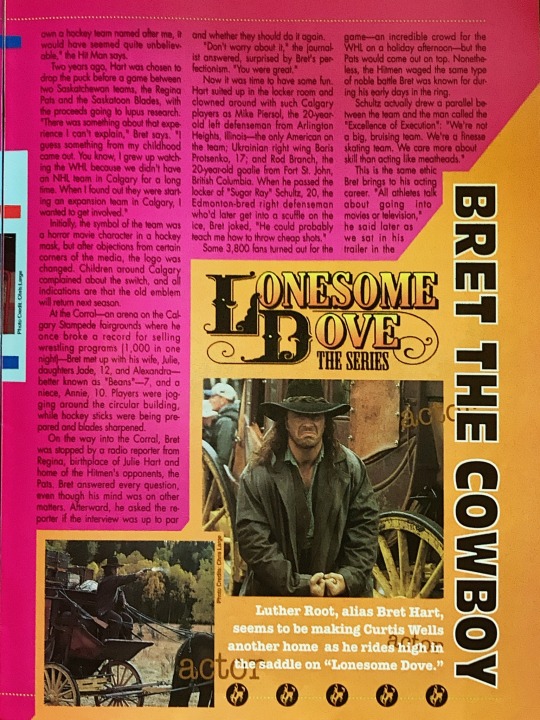
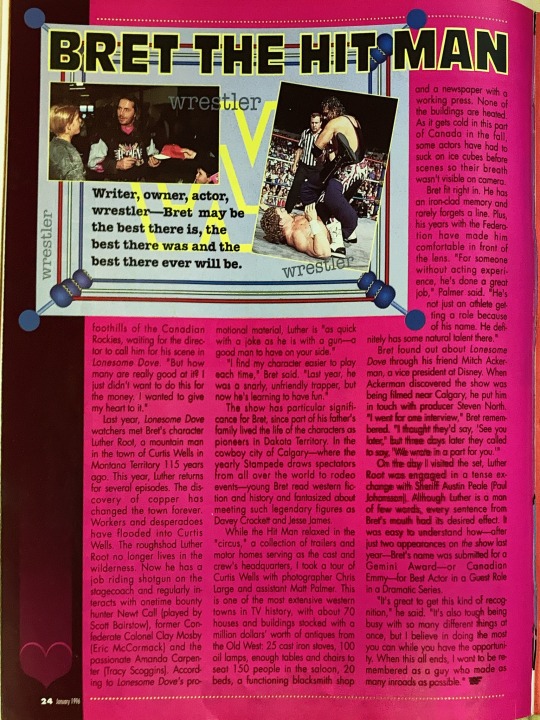
WORLD WRESTLING FEDERATION MAGAZINE : JANUARY 1996
THE WRITER, THE OWNER, THE COWBOY, AND THE HITMAN
Athlete, Actor, Entrepreneur & Columnist, Hart Has It All Goin’ On
By Keith Elliot Greenberg
The beard itched and made Bret Hart uncomfortable in front of his fans. “I don’t know about this,” he said about the stubble on his face as a doctor checked his blood pressure in the dressing room prior to a match with Isaac Yankem D.D.S. at New York Madison Square Garden. “You sure you want to run a picture of me with the beard? I mean, people might get the wrong idea.” Bret’s main concern was that his followers would think he was trying to change his image. In reality, he was simply slated to play a bearded character in the television western Lonesome Dove. “I want to make someone clear,” he stressed. “I’m not going for a new look–I’m the same guy. Plus, my 7-year-old daughter won't kiss me as long as I have this beard. So as soon as I’m finished with Lonesome Dove, it’s coming off. I just want to be me again.”
[Bret the Writer : Bret, the artist and writer, has a weekly column that is published in his hometown paper the Calgary Sun]
That’s a difficult challenge for Hart. As one of the Federation’s most sought-after personalities, he must divide–and then subdivide–his time. THe morning of our Madison Square Garden conversation, he attended a benefit for disabled youngsters. The night before, he wrestled in Boston. His schedule for the next few days was dizzying: A morning autograph session in Washington, D.C., followed by an afternoon match in Providence, Rhode Island, On Saturday–the same day his weekly column was published in his hometown paper, the Calgary Sun, accompanied by a Hart-illustrated cartoon. Then there was Lonesome Dove on Tuesday. On Monday, Thanksgiving in his native Canada, Bret combined business with pleasure. He and his family were going to watch the Calgary Hitmen, the junior hockey team he co owns.
[Bret the Owner : Bret has been playing hockey since he could barely walk. Today he skates with pride as part owner of the Calgary Hitmen.]
Two days after our conversation in New York, Bret and I hooked up again in Calgary at the Hitman’s office. Trying to make the most of his time in his hometown, Bret brought along his sons Dallas, 11, and Blade, 5. I talked to Bret about watching wrestling as a kid with my father and grandfather and noted how a night at the matches drew the family together. The Hit Man thought about my statement and seemed a little sad. While other families were growing close, cheering him on night after night, he was often far away from his own children.
As we chatted, a family walked into the office to purchase tickets for the day’s hockey game. As they evaluated the location of their seats, they spotted the two-time Federation Champion standing in the lobby with his sons. Each member of the family jumped back in disbelief. Bret responded with a smile and handshakes for everyone.
Two other sports celebrities, hockey players Theoren Fleury of the Calgary Flames and Joe Salic of the Colorado Avalanche, are shareholders in the team, but the Hitman takes its name—and much of its inspiration—from the World Wrestling Federation superstar.
“When Bret shows up at a press conference, we get double the media,” said Assistant General Manager Rusty James. “He adds an emotional element to the games. When he went on TV before we played the Red Deer Rebels and promised to run them out of town, it fired up the whole city of Calgary.” Incidentally, the Hitmen won that game 7-1.
The Hitmen are in their inaugural season in the Western Hockey League (WHL). Most of the players on this level are between 16 and 20 years old, and all have put everything else on hold for a chance to be recruited into the National Hockey League (NHL). The pressure is enormous, and the pace is hard; but in last year’s NHL draft, 55 WHL players were chosen.
Like most Canadians, Bret has been playing hockey since he could walk. His father, legendary Calgary promoter and wrestler Stu Hart, owned a resort in Clearwater Beach, Alberta, and when the lake would freeze up, all 12 Hart children—boys and girls—would choose up sides and go at it on the ice. “If someone had told me at the time that one day I’d own a hockey team named after me, it would have seemed quite unbelievable,” the Hit Man says.
Two years ago, Hart was chosen to drop the puck before a game between two Saskatchewan teams, the Regina Pats and the Saskatoon Blades, with the proceeds going to lupus research. “There was something about that experience I can’t explain,” Bret says. “I guess something from my childhood came out. You know, I grew up watching the WHL because we didn’t have an NHL team in Calgary, I wanted to get involved.”
At the Corral—an arena on the Calgary Stampede fairgrounds where he once broke a record for selling wrestling programs (1,000 in one night)—Bret met up with his wife, Julie, daughters Jade, 12, and Alexandra—better known as “Beans”—7, and a niece, Annie, 10. Players were jogging around the circular building, while hockey stickers were being prepared and blades sharpened.
On the way into the Corral, Bret was stopped by a radio reporter from Regina, birthplace of Julie Hart and home of the Hitmen’s opponents, the Pats. Bret answered every question, even though his mind was on other matters. Afterward, he asked the reporter if the interview was up to par and whether they should do it again.
“Don’t worry about it,” the journalist answered, surprised by Bret’s perfectionism. “You were great.”
Now it was time to have some fun. Hart suited up in the locker room and clowned around with such Calgary players as Mike Piersol, the 20-year-old left defenseman from Arlington Heights, Illinois–the only American on the team; Ukrainian right wing Boris Protsenko, 17; and Rod Branch, the 20-year-old goalie from Fort St. John, British Columbia. When he passed the locker of “Sugar Ray'' Schultz, 20, the Edmonton-bred right defenseman who’d later get into a scuffle on the ice, Bret joked, “He could probably teach me how to throw cheap shots.”
Some 3,800 fans turned out for the game–an incredible crowd for the WHL on a holiday afternoon–but the Pats would come out on top. Nonetheless, the Hitmen waged the same type of noble battle Bret was known for during his early days in the ring.
Schultz actually drew a parallel between the team and the man called the “Excellence of Execution”: “We’re not a big, bruising team. We’re a finesse skating team. We care more about skill than acting like meatheads.”
[Bret the Cowboy : Luther Root, alias Bret Hart, seems to be making Curtis Wells another home as he rides high in the saddle on “Lonesome Dove.”]
This is the same ethic Bret brings to his acting career. “All athletes talk about going into movies and television,” he said later as we sat in his trailer in the foothills of the Canadian Rockies, waiting for the director to call him for his scene in Lonesome Dove. “But how many are really good at it? I just didn’t want to do this for the money. I wanted to give my heart to it.”
Last year, Lonesome Dove watchers met Bret’s character Luther Root, a mountain man in the town of Curtis Wells in Montana Territory 115 years ago. This year, Luther returns for several episodes. The discovery of copper has changed the town forever. Workers and desperadoes have flooded into Curtis Wells. The roughshod Luther Root no longer lives in the wilderness. Now he has a job riding shotgun on the stagecoach and regularly interacts with onetime bounty hunter Newt Call (played by Scott Bairstow), former Confederate Colonel Clay Mosby (Eric McCormack) and the passionate Amanda Carpenter (Tracy Scoggins). According to Lonesome Dove’s promotional material, Luther is “as quick with a joke as he is with a gun–a good man to have on your side.”
“I find my character easier to play each time,” Bret said. “Last year, he was a snarly, unfriendly trapper, but now he’s learning to have fun.”
The show has particular significance for Bret, since part of his father’s family lived the life of the characters as pioneers in Dakota Territory. In the cowboy city of Calgary–where the yearly Stampede draws spectators from all over the world to rodeo events–young Bret read western fiction and history fantasized about meeting such legendary figures as Davey Crockett and Jesse James.
While the Hit Man relaxed in the “circus,” a collection of trailers and motorhomes serving as the cast and crew’s headquarters, I took a tour of Curtis Wells with photographer Chris Large and assistant Matt Paler. This is one of the most extensive western towns in Tv history, with about 70 houses and buildings stocked with a million dollars’ worth of antiques from the Old West: 25 cast iron stoves, 100 oil lamps, enough tables and chairs to seat 150 people in the saloon, 20 beds, a functioning blacksmith shop and a newspaper with a working press. None of the buildings are heated. As it gets cold in this part of Canada in the fall, some actors have had to suck on ice cubes before scenes so their breath wasn’t visible on camera.
Bret fit right in. He has an iron-clad memory and rarely forgets a line. Plus, his years with the Federation have made him comfortable in front of the lens. “For someone without acting experience, he’s done a great job,” Palmer said. “He’s not just an athlete getting a role because of his name. He definitely has some natural talent there.”
Bret found out about Lonesome Dove through his friend Mitch Ackerman, a vice president at Disney. When Ackerman discovered the show was being filmed near Calgary, he put him in touch with producer Steven North. “I went for one interview,” Bret remembered. “I thought they’d say, ‘See you later,’ but three days later they called to say, ‘We wrote in a part for you.’”
On the day I visited the set, Luther Rott was engaged in a tense exchange with Sheriff Austin Peale (Paul Johansson). Although Luther is a man of few words, every sentence from Bret’s mouth had its desired effect. It was easy to understand how–after just two appearances on the show last year–Bret’s name was submitted for a Gemini Award–or Canadian Emmy–for Best Actor in a Guest Role in a Dramatic Series.
[Bret the Hitman : Writer, owner, actor, wrestler–Bret may be the best there is, the best there was and the best there ever will be.]
“It’s great to get this kind of recognition,” he said. “It’s also tough being busy with so many different things at once, but I believe in doing the most you can while you have the opportunity. When this all ends, I want to be remembered as a guy who made as many inroads as possible.”
#sorry about the somewhat messy scans I don't know why but this magazine wouldn't want to be pictured.#bret the hitman heart#bret hart#bred#wwf#WWF magazine 1990s#WWF magazine#magazine scan#magazine transcript#1990s#1996
12 notes
·
View notes